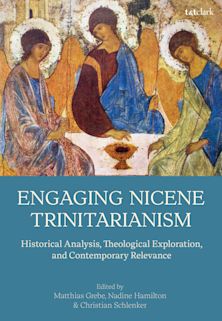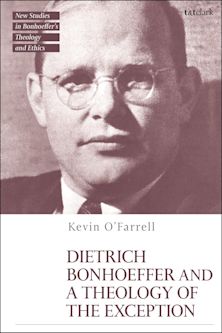- Home
- ACADEMIC
- Theology
- Historical Theology
- Early Christian and Greco-Roman Conceptions of Blood Difference
Early Christian and Greco-Roman Conceptions of Blood Difference
Early Christian and Greco-Roman Conceptions of Blood Difference
You must sign in to add this item to your wishlist. Please sign in or create an account
Description
This book interrogates the historical contingency of the common idiom “blood is thicker than water,” asking what the role of Christianity is in the development of blood mythology lurking in everyday speech.
The author examines the concept of blood within Greco-Roman and early Christian contexts, investigating blood's significance beyond a mere biological substance. The analysis traces the evolution of blood's symbolic meaning in order to understand how it relates to conceptions of kinship, purity, and the divine. In the early chapters, the book surveys conceptions of blood and consanguinity in Greco-Roman thought, ranging from the mythologies of Homer and the histories of Livy to the medical descriptions of Galen and Soranus to the ritual descriptions of Jubilees and Ephrem the Syrian. By providing a general survey of Greco-Roman understandings of blood, the book shows, in the remaining chapters, the way specific early Christians drew upon Greco-Roman notions of blood. By outlining how the singularity of the blood of Christ produces different understandings of blood in the writings of Irenaeus, Tertullian, and Origen, the author argues that Christians did not invent blood differentiation but they do intensify the symbolic power of blood to make a difference.
Table of Contents
Introduction: The Blood That Is Like Soil.
Chapter 1: The Blood that is Like a Line, Long and Swollen: From Whose Blood Did You Come?
Chapter 2: The Blood That Is Like Ichor: Greco-Roman Blood is Nourishing
Chapter 3: The Blood that is Like All the Other Bloods: She Welcomes Death as a Lover
Chapter 4: The Blood That Is Like Medicine, Poison, or Fire: To Sprinkle is to Splatter
Chapter 5: Irenaeus of Lyons and the Blood that Is Like “Our Blood”: Blood Can Be Inherited by the Kingdom of God
Chapter 6: Tertullian and the Blood that Is Like Seed: They Welcome a New Death
Chapter 7: Origen of Alexandria and the Blood that is Not Blood: The Soul Is Not Blood
Conclusion: A Blood Like Any Other, Only More So
Bibliography
Product details
| Published | 11 Dec 2025 |
|---|---|
| Format | Ebook (PDF) |
| Edition | 1st |
| Extent | 176 |
| ISBN | 9798216254089 |
| Imprint | T&T Clark |
| Publisher | Bloomsbury Publishing |
About the contributors
Reviews
-
Wilson sets out to answer an important historical question: are Christians uniquely obsessed with blood? In pursuit of this question, he offers a compelling and engaging account of the theological and social power of blood within early Christianity. Drawing upon an impressive array of ancient sources, Wilson persuasively narrates the peculiar ways early Christians adapted pre-existing theories of blood's power in order to imagine and effect new modes of kinship. With lively prose, Wilson has provided a robust and accessible framework for understanding the difference 'blood difference' made in Greco-Roman antiquity and, in so doing, he has established a new standard reading of early Christian hematology.
John David Penniman, associate professor of Religious Studies and Director of the Health Humanities Initiative, Bucknell University

ONLINE RESOURCES
Bloomsbury Collections
This book is available on Bloomsbury Collections where your library has access.

































